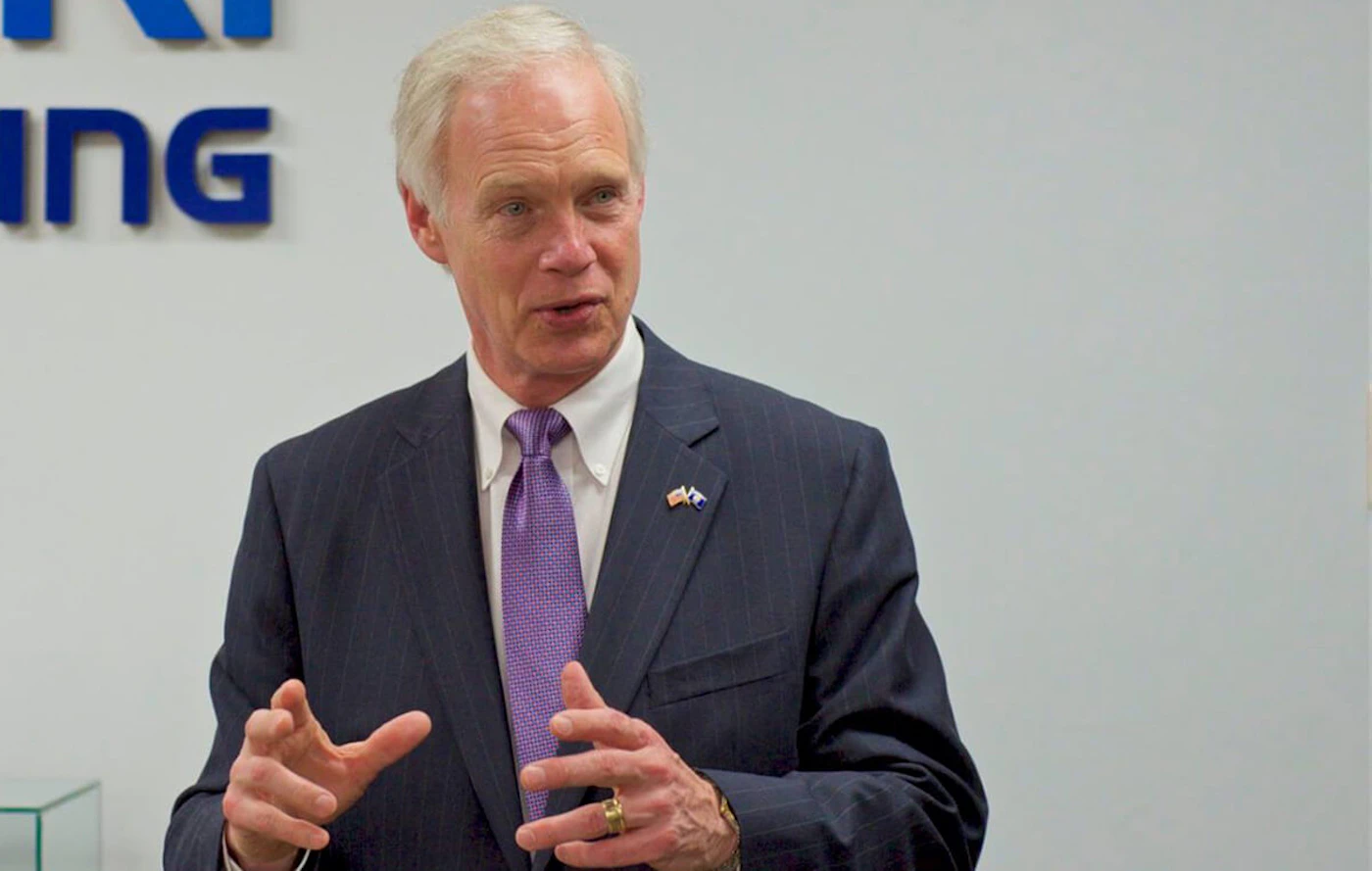US Senate Republicans blocked a vote to raise the nation’s debt ceiling. If it’s not raised, the national and world economy could suffer.
The day after US Senate Republicans including Wisconsin Sen. Ron Johnson blocked a bill to keep the government running and raise the debt limit, a fiscal policy expert warned that playing fast and loose with the government’s ability to honor its debts could spell trouble not only for the country’s ability to borrow the money it needs to operate, but the larger economy as a whole.
Monday’s 50-48 vote against taking up the bill fell well short of the 60 needed to proceed over a GOP filibuster.
Democratic Sen. Tammy Baldwin of Wisconsin, on Tuesday chided Senate Republicans for turning their backs on paying the country’s bills.
“Last night, I voted to fund the government, prevent a shutdown and avoid a first-ever default on paying our bills, but Senate Republicans filibustered and insisted on being the party of default,” Baldwin said in a statement. “Mitch McConnell is playing a dangerous political game with the full faith and credit of America and our economy. If they are going to turn their backs on paying our bills, then he needs to let Senate Democrats get the job done with a simple majority vote.”
Political Weapon
Despite his party’s move to filibuster, or block, the vote on the debt ceiling, Johnson said Democrats in the chamber were “fully capable of increasing the debt ceiling without Republican votes,” noting that he had given Democrats “fair warning that they would not receive Republican help in raising the debt ceiling to accommodate” what he called “their partisan deficit spending.”
Refusing to raise the debt limit has routinely become a political weapon used by Republicans to attack Democrats, despite past GOP support for raising the debt limit under Republican Presidents.
According to the Washington Post, Republican Senate Minority Leader Mitch McConnell has voted to increase or suspend the debt limit 32 times, including three times under former President Donald Trump, who added $7.8 trillion to the US debt.
RELATED: Investigation Shows How Ron Johnson Secured a Giant Tax Break for Mega GOP Donors
Beltway insiders remain confident that a vote on increasing the debt limit will happen before the government is in real danger of default.
Senate Majority Leader Chuck Schumer (D-NY) announced Tuesday, for instance, that he will seek consent to set up a vote using the same process Republicans employed in 2006 to extend the debt ceiling at a simple majority threshold.
But while Democratic leaders search for a work-around to the Republican blockade, others remain worried about the implications of delays.
According to Bipartisan Policy Center, there have been five times in the last decade that the federal government has come perilously close to defaulting on its debt. Those instances occurred in 2011, 2013, 2017, 2018 and 2019.
And if DC’s recent history of political brinkmanship over the debt ceiling is any lesson, it could happen again this year.
Dangerous Game
Although Congress has come to this precipice many times before, the perception is that the two parties are more “locked-in” than before, and that has people worried, said Menzie Chinn, a professor of economics at the University of Wisconsin’s La Follette School of Public Affairs and expert on fiscal and monetary policy.
“This is the first time where it may not just be [political theater] but it is actually a case where they very well may not [pass an increase to the debt ceiling], and the consequences are big,” Chinn said. “When you shut down the government, essential services still continue, but if you hit the debt limit, you have to stop payments.”
Stopping payments to Social Security beneficiaries is bad, and so is failing to pay government workers, Chinn said, but when government stops payments on interest, which is what happens when the debt limit is exceeded, everybody who has US debt, is going to reassess the likelihood that the US is going to pay them on time in the future.
“Even when those shortfalls are temporary, you can have a several-week increase in the interest rate that the government pays,” he added.
Chinn calls the entire situation a “self-inflicted wound,” since the federal government has long used deficit spending and can’t pay for the operations and debts it currently has without continually raising the debt-limit.
“The problem is that the rest of the world is linked up to interest rates on US treasuries. US Treasury bonds, notes, and bills are the benchmark by which everybody assesses everything else,” Chinn said. “It is not just an abstract thing. It is the American economy—and to some extent, the world economy—that is impacted [when America defaults on its debt]. And there is just a certain amount of uncertainty that is engendered when the government doesn’t seem to be able to get its act together.”





